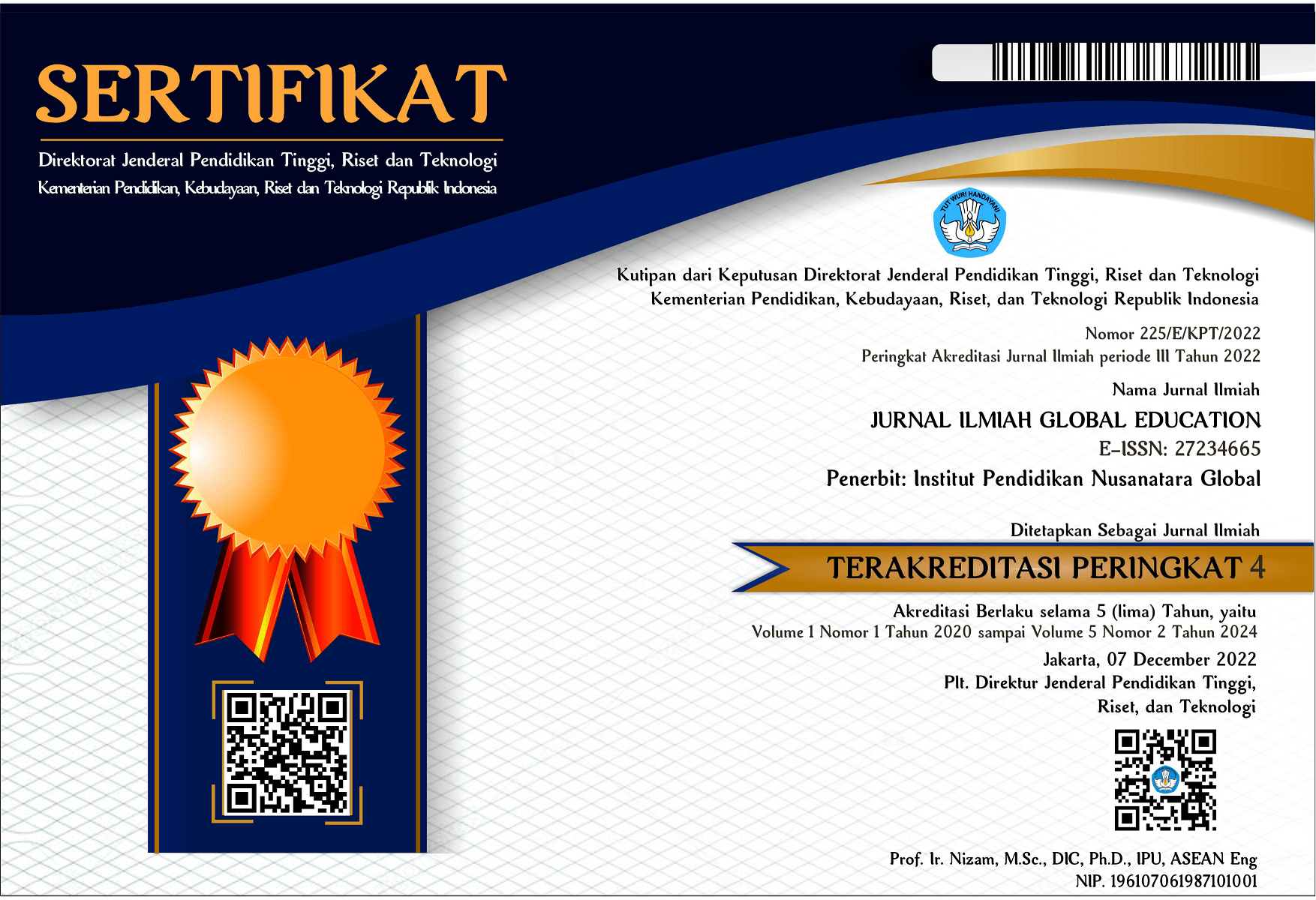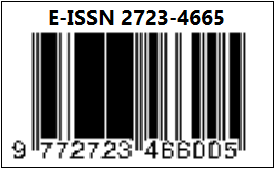The Potential of Blockchain Technology to Mitigate Tax Avoidance
DOI:
https://doi.org/10.55681/jige.v5i4.3694Keywords:
Blockchain Technology, Tax Avoidance, Tax TransformationAbstract
Tax avoidance is a major concern for the Indonesian economy and tax system. The tax system in Indonesia is governed by a complex legal and regulatory framework, which includes several ASEAN nations that have adopted blockchain technology. This study aims to investigate the opportunities and challenges of implementing blockchain technology to reduce tax avoidance practices in Indonesia, and how can the adoption of this technology enhance the transparency and accountability of the tax system compared to ASEAN countries that have already done so. The research methodology uses qualitative descriptive analysis with a case study approach to examine how blockchain technology is being implemented in the tax systems in Indonesia. The study examines case studies from ASEAN nation's tax systems that have implemented the technology to determine whether and how blockchain might successfully lessen tax avoidance methods used in Indonesia. Integrating blockchain technology into ASEAN tax systems can significantly improve tax management's accuracy, efficiency, and transparency. Despite blockchain's enormous potential, Indonesia faces several obstacles to its implementation, including a lack of knowledge and training among industry participants and tax authorities, a shortage of technological infrastructure, and the requirement to create regulations that encourage its adoption. Blockchain technology can streamline administrative procedures, enhance tax reporting, and facilitate automation through smart contracts in Indonesia's fiscal system.
Downloads
References
Abdullah, R. & Othman, A. (2021). "Scalability of Blockchain in Malaysia: Issues and Solutions." International Journal of Blockchain Technologies.
Bensalah, D.S., Cho, D. H., et al. (2021). Blockchain for Tax Administration: An Application to VAT in The EU, European Taxation Review, 45(3), 123-138.
Blume, S. (2018). Blockchain in Estonia: A Digital Revolution. DigiComp.org.
Chia, W., & Chuen, D. (2020). "Blockchain and Legal Uncertainty in Thailand: Addressing Regulatory Gaps". Asia Pacific Financial Review, 14(2), 120-130.
E-Estonia. (n.d.). How Estonia became one of the most advanced digital societies. https://e-estonia.com.
Fintech News Singapore (2021). "Regulatory Challenges for Blockchain Adoption in Singapore". Fintech Review, Vol. 12, Issue 3.
Goh, F., & Tan, L. (2021). Blockchain Adoption in Singapore: Economic and Financial Impacts. Asia Pacific Journal of Technology and Innovation, 5(2), 80-94.
Haryanto, R. T., & Nugroho, A. (2021). Blockchain Technology for Modernizing Tax Administration: A Case for Indonesia. Journal of Taxation and Technology, 9(4), 102-118.
Kalle, T. A., Meier, J. L., et al. (2021). Blockchain and its Implications for Tax Compliance. International Journal of Tax Administration, 13(4), 267-287.
Kumar, H. F., Gupta, S., et al. (2021). The Role of Blockchain Technology in Modernizing Tax Systems. Journal of Financial Innovation, 8(2), 47-60.
Lee, K., & Cheong, M. (2021). "Cost Barriers in Blockchain Adoption in Malaysia." Journal of Digital Innovation and Technology.
Low, K., & Ho, T. (2020). Scalability Challenges in Blockchain Implementations in Singapore: A Technological Perspective. Journal of Blockchain Technology and Applications.
Mendoza, A., & Tan, F. (2020). "Blockchain Infrastructure Challenges in the Philippines". Asia Pacific Journal of Information Technology, 11(1), 100-115.
Mougayar, W. (2016). The Business Blockchain: Promise, Practice, and the 2nd Digital Revolution. Wiley.
Mougayar, W. (2021). The Business Blockchain: Promise, Practice, and the 4th Industrial Revolution. Wiley.
Nguyen, H., & Le, D. (2020). "Blockchain Regulation and Its Challenges in Vietnam". Journal of Southeast Asian Law, 12(1), 33-45.
Petrovic, R. C., Bae, A. N., et al. (2021). Blockchain and VAT Fraud Prevention: The Case of EU's Digital Tax System. Tax Review International, 42(3), 215-228.
Pomerleau, K. (2020). Blockchain in Government: Challenges and Opportunities. Government Technology Review.
Putra, M. A., & Santoso, E. F. (2021). The Role of Blockchain in Preventing Tax Evasion in Indonesia. Asian Economic Policy Review, 14(2), 289-302.
Somchai, P., & Natcha, S. (2021). "Blockchain and Data Privacy in Thailand: Securing Personal Information". Journal of Blockchain Technology and Applications, 9(4), 56-70.
Sutrisno, I. S., & Widodo, D. D. (2021). Blockchain and its Potential Applications in the Indonesian Tax System. International Journal of Tax Administration, 14(3), 214-230.
Suryadi, A. K., & Wulandari, L. (2022). Enhancing Tax Compliance in Indonesia through Blockchain Integration. Indonesia Business and Economic Review, 16(3), 210-225.
Swan, M. (2015). Blockchain: Blueprint for a New Economy. O'Reilly Media.
Tapscott, D., & Tapscott, A. (2016). Blockchain Revolution: How the Technology Behind Bitcoin and Other Cryptocurrencies is Changing the World. Penguin.
Tan, L., & Lim, S. (2021). Blockchain Privacy Issues in Singapore: A Review of Data Protection Concerns. International Journal of Information Security, 15(4), 307-320.
Tan, W. (2020). "Blockchain Regulation in Malaysia: A Review of Current Policies and Future Outlook." Journal of Financial Technologies.
Yeo, A. & Tan, J. (2020). The Road to Blockchain Adoption in Singapore: Challenges and Opportunities. Singapore Economic Review.
Downloads
Published
How to Cite
Issue
Section
License
Copyright (c) 2024 I Gusti Putu Eka Rustiana Dewi, Ni Made Sintya Surya Dewi

This work is licensed under a Creative Commons Attribution-ShareAlike 4.0 International License.













